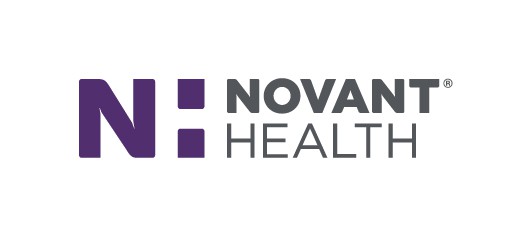By Page Leggett, Novant Health contributing writer
Jennifer Keiger, a family nurse practitioner with Novant Health WomanCare – Kernersville, has a passion for helping women adjust to one of the most profound changes they’ll ever go through: new motherhood.
There’s plenty of advice on what to expect when you’re expecting. Here, Keiger gives some candid comments on what to expect after you’ve delivered.
What postpartum changes are women often surprised by?
Motherhood changes your body. Your abdomen and your belly now have a little pooch. Your breasts are a different shape. You may have joint or musculoskeletal aches. It’s not because you’re weak. It’s because your body produced hormones to spread out those joints and make your tendons and ligaments a little stretchier so that your body could give birth.
Your internal body – your cervix, uterus, ovaries, vaginal tissue – usually heals in six to eight weeks. But the changes to your abdominal muscles can actually take anywhere from 12 to 18 months to return.
How common is postpartum hair loss, and does it usually correct itself?
Higher levels of estrogen in pregnancy keep hair from falling out during its natural cycle. After birth, hormone levels fall, and we lose hair again. If you see a lot of hair loss, especially after six months, she should speak to her doctor to make certain she’s not battling low thyroid or iron deficiency anemia.
Is postpartum bleeding normal?
Your uterus has to shed the lining where the placenta was attached. The first phase is called lochia rubra. This is a darker red, period-like bleeding and can last three to five days. After that, the bleeding turns more yellowish to a brownish color and can last for another week before becoming discharge that is white or clear. You may still see streaking of brownish blood for up to six weeks.
If you bleed longer than that or have bright, red bleeding for longer than about five days, that could indicate an infection and you need to contact your health care clinician.
When is it OK to resume sex?
At the six-week postpartum checkup we determine whether the body is healed enough for exercise and sexual activity.
Sex may not feel the most comfortable at first, but as the body continues to heal, it should become less painful and/or less uncomfortable. Breastfeeding moms may experience vaginal dryness. Talk to your doctor about any concerns.
How common is postpartum depression?
Your hormones fluctuate, especially in the four weeks after delivery. They can cause you to feel sad or a little overwhelmed. But if those feelings last longer, get screened for postpartum depression, which includes feelings of extreme sadness, disconnection, anxiety or not wanting to care for yourself and your baby.
Postpartum depression is very treatable. Our best medications include things like Lexapro, Zoloft, Prozac. They are very helpful and can be taken safely in the postpartum and breastfeeding period.
How long it might take new moms to lose baby weight?
Women can usually expect to see their weight back at its pre-pregnant amount by six to 12 months. Breastfeeding can help speed up weight loss.
Being a mom is a 24/7 job, and new moms have to do it on very little sleep. How do you recommend new moms make time to care for their own health when they’re so focused on their newborn?
It is crucial that women take time – even 15 or 20 minutes – to sit down and relax. I remember when I was a new mom thinking: Oh, goodness. I’ve got 20 minutes to wash bottles in between feedings, or I’ve got a few moments to tidy up while baby was sleeping. And I had to tell myself to stop.
You have to make yourself a priority; you are one of the main ones now providing the care for this baby. And without this type of attention, your baby cannot thrive. Delegate responsibilities if you can. Rest. Reach out to your support network.
——
Expecting? Novant Health is delighted to now offer next-level birth care at Novant Health Kernersville Medical Center so families can welcome their new addition closer to home. Learn more about the new maternity services in Kernersville here or explore all the hospital’s services by visiting NovantHealth.org/Kernersville.
Facebook: https://www.facebook.com/














